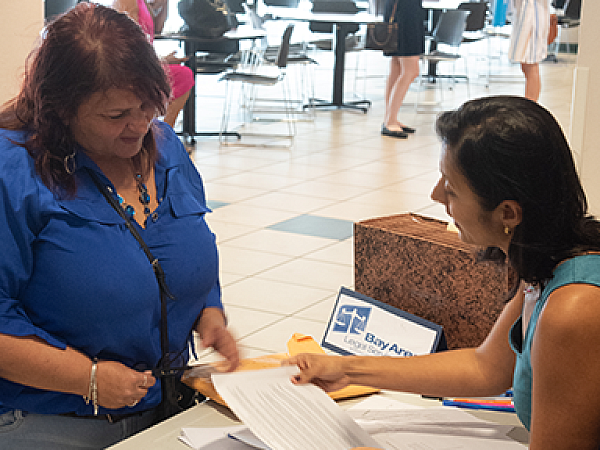Disaster Recovery: Developing a Plan (VIDEO)
Hello, my name is John Lawless, staff attorney with Bay Area Legal Services’ Disaster Relief Project and the Florida Disaster Legal Aid Helpline. I’m here with my colleague Jason to discuss some simple steps anyone can take to avoid common issues while recovering from disaster.
Today, we’re here to discuss the importance of having a family disaster plan. A family disaster plan lets each member of your family know what to do in the event of a disaster. Making a disaster plan makes it more likely that you and your family will not leave out any crucial details, and place you in a better position to receive the aid and relief you need in the wake of a disaster.
Your family’s disaster plan should include:
- What disasters are most likely in your area
- Plans for “anywhere” disasters like fire and flood
- Information on every family member, including pets
- Evacuation routes
- Meeting places for your family
Having your plan written down will help make sure your family all has the same idea, and will make it easier to practice what to do in the event of a disaster.
To help show us how it’s done, I’ve asked Jason to prepare a written plan to share. Jason, do you have a written plan?
That great, Jason. Now, with a little help from the "J-Viewer" (patent pending) let’s take a look at what Jason has done.
Disaster Plan. So far, so good. Let’s take a look at what’s inside.
Hmm. A few things seem to be missing. Jason, have you thought about the kinds of disasters you might experience in your area?
We’re still not quite there. What about likely evacuation routes?
I’m not sure Jason has a plan.
It seems we still have a little work to do. Let’s see if I can help.
Now we’ll have a look inside.
The Red Cross made this handy form that anyone can find on their website. Here we see space for all of our family members’ information, what disasters we’re likely to see, where evacuation routes are, and where the family can meet.
Here we see a few more things to consider, like alternate evacuation plans and meetings places. We should also think about family members who may need a little extra help.
Finally, we should think about who in the family is responsible for what. That way, we can get everything we need done without any confusion.
Whew. Now we have a better idea of what to put into our plan.
Got it, Jason?
He gets it. Now, if you and your family keep these tips in mind, you’ll be a lot more resilient in the aftermath of disaster, and a lot less like Jason.
We appreciate you taking the time to listen. For more information on what to do in the wake of a disaster, please visit the following resources.
Upcoming Legal Clinics
Apply for Services
Apply by phone Monday-Friday, 9 a.m.-4:30 p.m., or apply online anytime for non-emergency legal matters. Language interpreters are available to you at no cost.
Bay Area Legal Services
If you live or have a case in Hillsborough, Pasco, Pinellas, Manatee, or Sarasota counties, we may be able to help.
Statewide Legal Helplines
If you live or have a case in Florida, we may be able to help.
